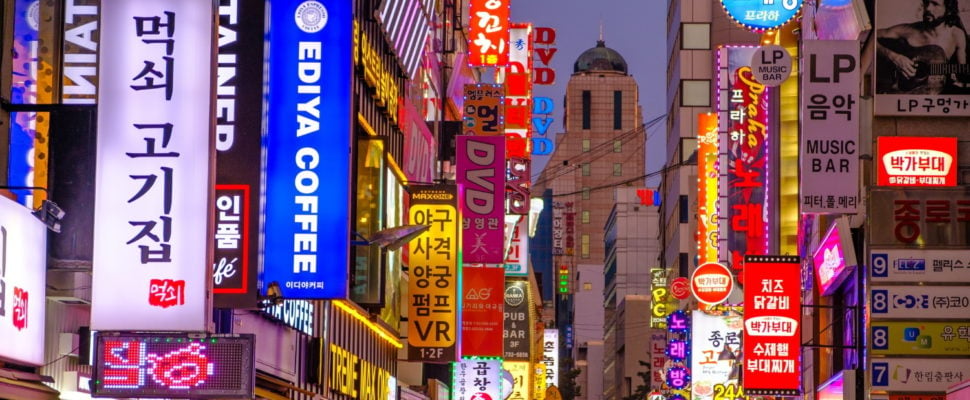Amid global supply shortages and shipment delays for COVID-19 vaccines, South Korea has launched an ambitious 2.2 trillion won (USD 1.9 billion) investment plan to become one of the world’s five largest COVID-19 vaccine manufacturing hubs by 2025. Here, we provide a rundown of some of the key companies involved in this vaccine push, both those developing their own candidates and those partnering with other firms on manufacturing and supply.
The Current Frontrunner
SK Bioscience
SK bioscience is a vaccine company that was spun off from SK Chemicals, one of Korea’s Top 10 pharma companies, in 2018. Phase 3 trials for its COVID-19 vaccine candidate in combination with GSK’s pandemic adjuvant are currently underway, meaning that SK is ahead of the pack in Korea in terms of development. Back in August, Korean Health Minister Kwon Deok-cheol said “Currently the frontrunning candidate is (SK Bioscience’s) protein-based vaccine, which we will work to distribute for public use early next year [2022].”
Along with fellow Korean firms Samsung Biologics, ST Pharm, and Ecell, SK is part of a Korea-US panel of medical and vaccine experts, venture capitalists and drugmakers looking at ways to leverage US vaccine expertise and Korean production capacity.
The Big Beasts of Korean mRNA
Hanmi Pharmaceutical
One of the giants of Korean Pharma, Hanmi is a founding member of the ‘K-mRNA Consortium’, along with along with ST Pharm, GC Green Cross, the Korea Innovative Medicines Consortium, and the Korea Pharmaceutical and Bio-Pharma Manufacturers Association. Dong-a ST and Ecell are two more recent sign-ups. Launched in June 2021, the consortium is aiming to develop a COVID-19 vaccine using the messenger RNA (mRNA) technology also used in the Pfizer/BioNTech and Moderna vaccines by the first half of 2022, produce 100 million doses of mRNA vaccines annually, establish a mass production system for vaccines based on the mRNA platform, and produce more than one billion doses by 2023.
Currently, Hanmi Pharmaceutical has a mass production system that can produce more than 100 million doses of three key raw materials, including plasmid DNA, every year. The firm has established partnerships with global partners including MSD, Genentech, and Spectrum Medical.
ST Pharm
CDMO ST Pharm has several roles in the COVID-19 vaccine push: manufacturing other companies’ candidates, supplying the necessary raw materials to Korean and overseas mRNA vaccine developers, and developing its own vaccine. The firm has experience in commercializing antiviral drugs for GSK and Gilead and is planning to apply for Phase I clinical trial approval for its own candidate within the year.
ST has built GMP process facilities for mRNA and is planning to secure a production capacity of 10 million doses based on undiluted vaccines annually by the end of 2021, first building thefacility needed for Phase III trials and later expanding it.
Read our 2018 interview with ST Pharm CEO Kyungjin Peter Kim here
GC Pharma
Within the K-mRNA consortium, GC Pharma [Green Cross Corporation] is charged with producing finished products by injecting undiluted vaccines into vials. In addition to its current production capacity of 400 million doses (based on finished products), it is planning to invest in facilities that can produce 600 million doses next year.
Samsung Biologics
Samsung Biologics, one of Korea’s leading pharmaceutical companies, is the country’s first to take part in mRNA vaccine production, having announced an agreement with Moderna for fill-finish manufacturing of mRNA-1273 on May 22nd.
Under the contract with Moderna, Samsung Biologics plans to add an mRNA vaccine production line at its facility in Songdo by early 2022, which is also part of Samsung Biologics’s long-term strategy to expand its business portfolio.
Read our 2018 interview with Samsung Biologics President & CEO Tae-Han Kim here
The mRNA Upstarts
Quratis
Quratis is one of the three start-up Korean firms developing a COVID-19 vaccine based on mRNA technology (the others are EyeGene and Gene One Bioscience). Together with the Korean Biomedicine Industry Association, vaccine manufacturer Boryung Pharmaceutical and the Vaccine Safety Technology Support Center under the Korean Ministry of Food and Drug Safety, these companies form the ‘mRNA Bio Venture (Start-up) Consortium’.
Quratis received approval for phase 1 of its mRNA candidate, which was jointly developed with HDT Bio, and is currently conducting Phase I clinical trials
Quratis has built its own mRNA vaccine production facility and has established a production line that can carry out the entire process from undiluted vaccine to LNP and finished production. The firm also has a GMP-level Osong Bio Plant that can produce about 750 billion doses per year based on the finished product.
EyeGene
The second member of the mRNA Bio Venture (Start-up) Consortium, EyeGene began administering its mRNA vaccine ‘EG-COVID’ to its first patient with the approval of Phase I and IIa trials in Summer 2021. EyeGene’s candidate uses liposome rather than LNP as a messenger to deliver mRNA into cells
Its partner company BMI Korea is currently constructing a liposome production facility at its Jeju plant and plans are afoot to secure production capacity up to 20 million doses in 2021. Plant Two, which has been further expanded its production capacity, is under construction in Osong.
GeneOne Life Science
The third start-up in the mRNA Bio Venture (Start-up) Consortium is GeneOne Life Science. Branding itself as “a biotechnology R&D company,” GeneOne holds both undiluted mRNA vaccine production technology and plasmid cGMP mass production technology. Phase IIa clinical trials of the company‘s self-developed DNA-based COVID-19 vaccine candidate began in July 2021.


